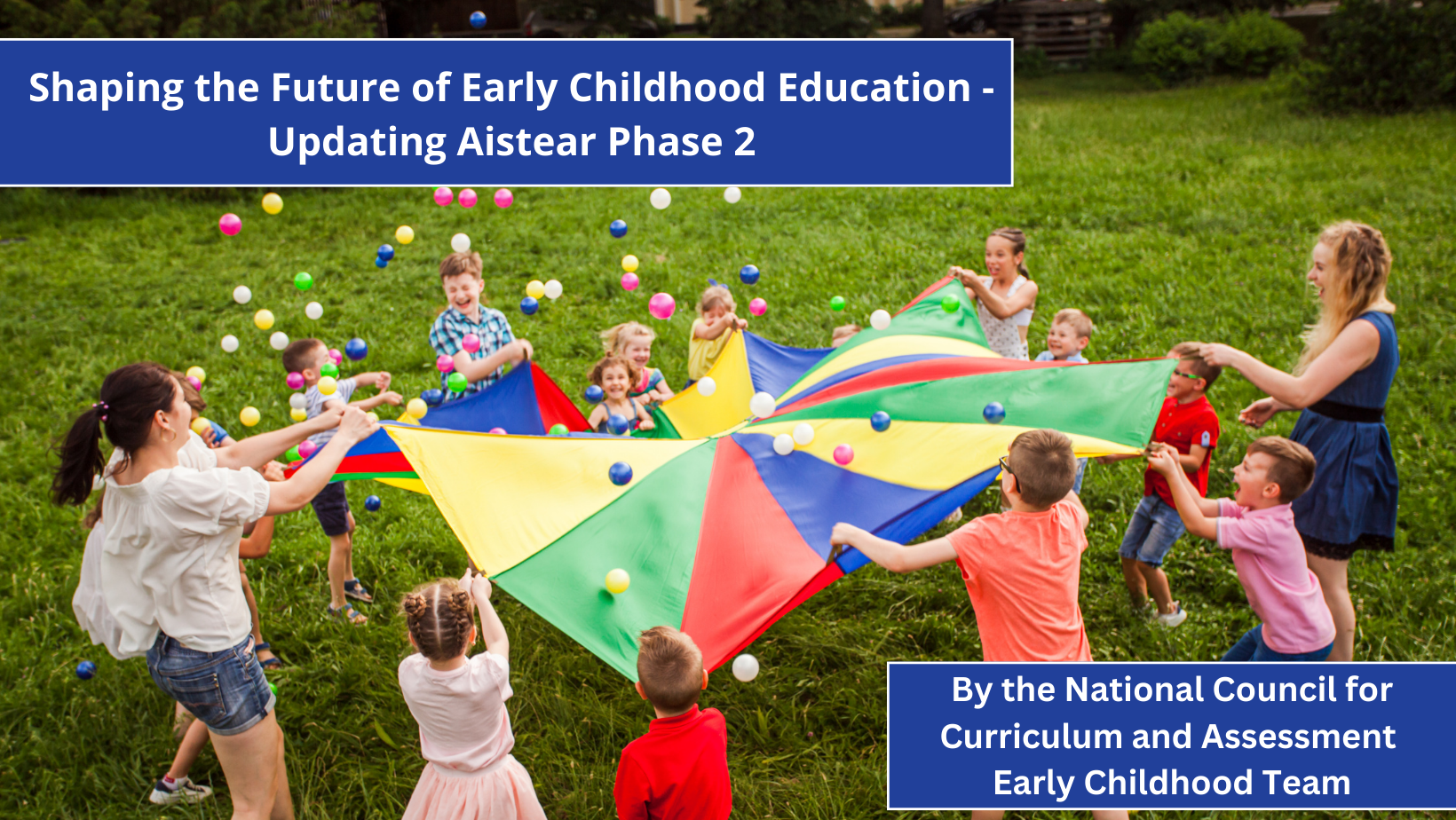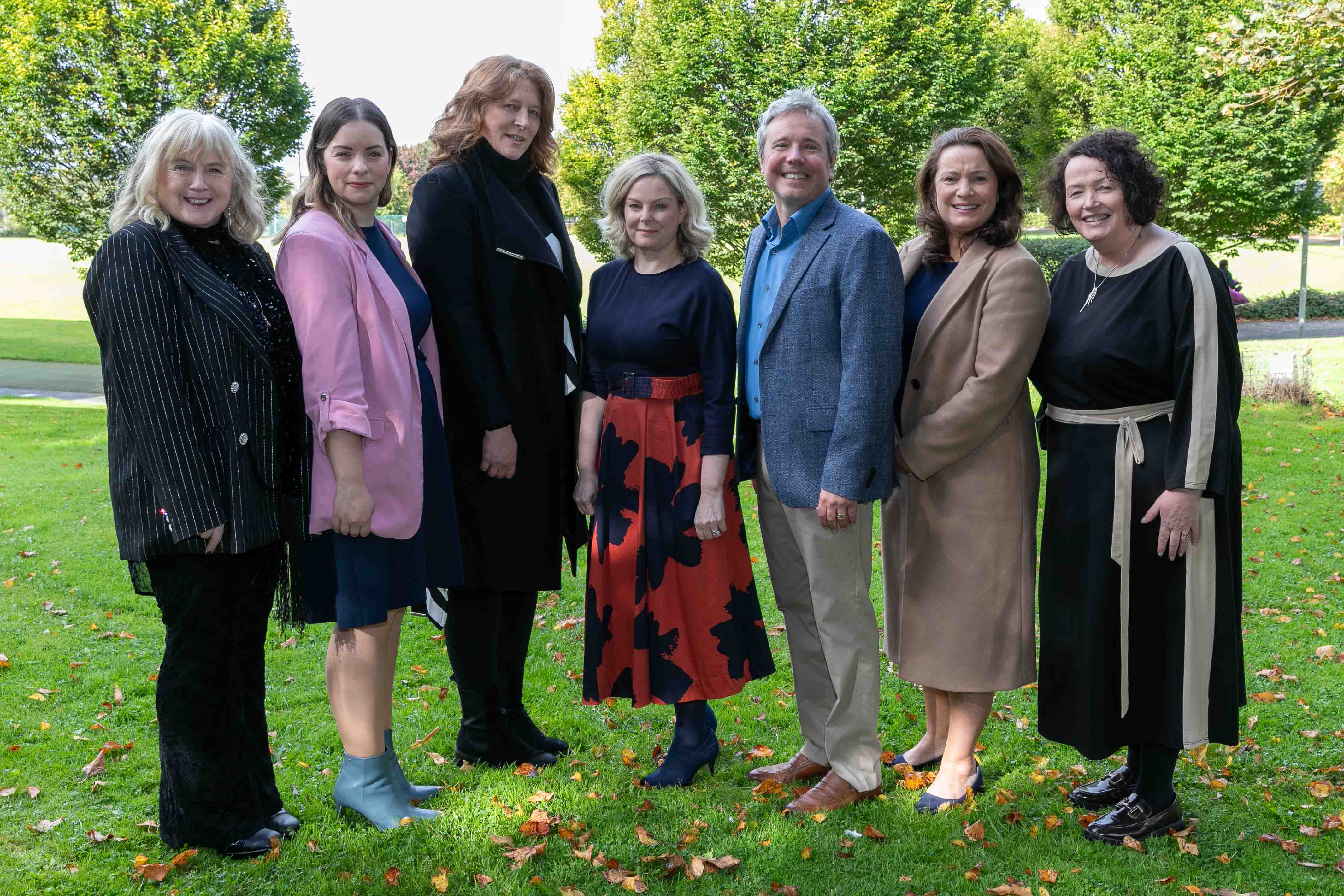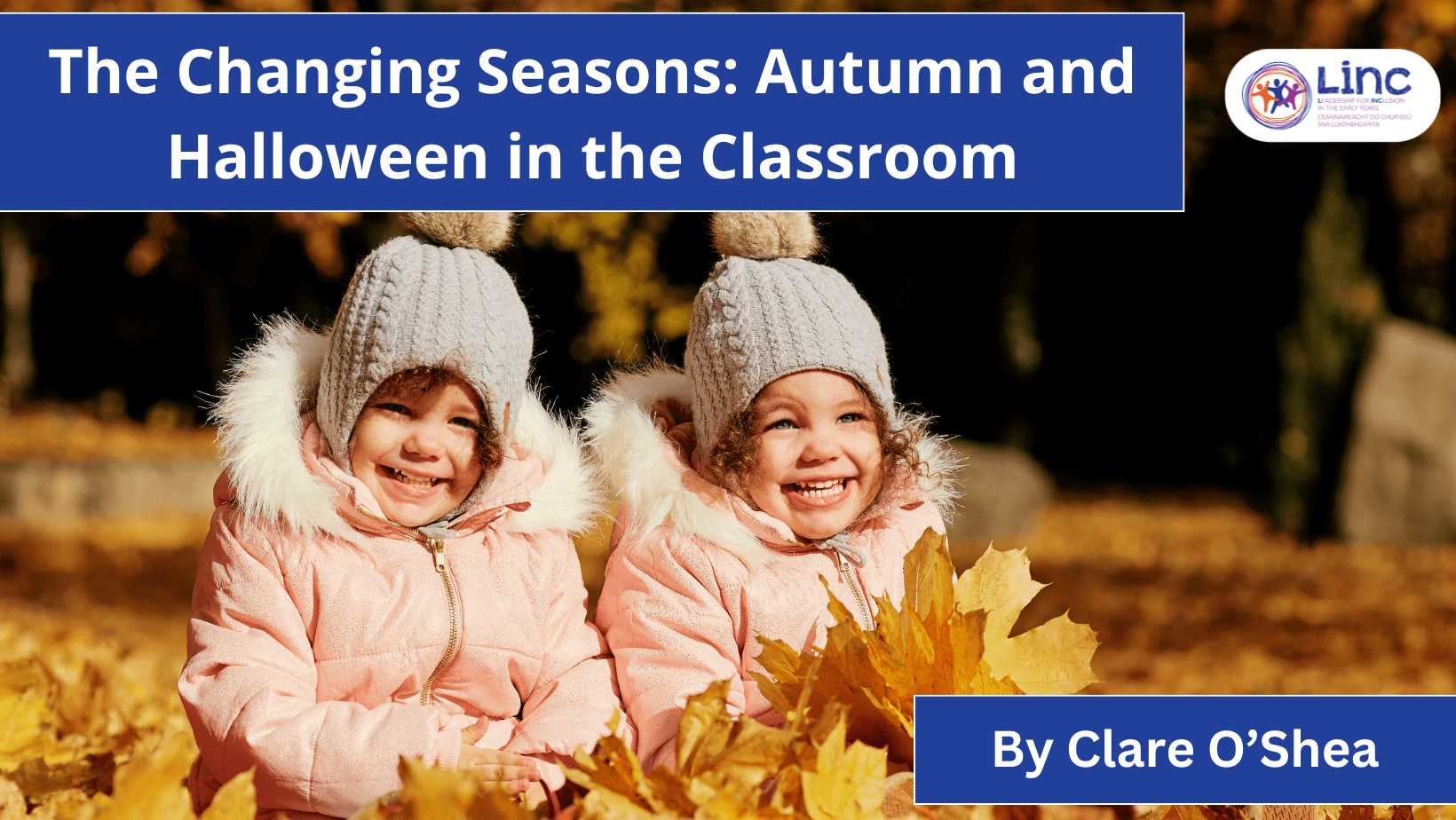Shaping the Future of Early Childhood Education
– Updating Aistear Phase 2
In this edition on the LINC Blog, the National Council for Curriculum and Assessment (NCCA) Early Childhood Team discuss Phase 2 of Updating Aistear, the Early Childhood Curriculum Framework. The Team outline the significance of Diversity, Equality and Inclusion within Aistear and how educators, parents and other stakeholders are invited to share their views and ideas.

Aistear: the Early Childhood Curriculum Framework (NCCA, 2009) is currently being updated. Last year, the National Council for Curriculum and Assessment (NCCA) invited the early childhood sector to share their views on what is working well with Aistear and what might need to be changed or updated. The NCCA Consultation Report (2023) highlighted key messages to consider in updating Aistear to reflect policy development and sectoral changes over the past number of years. As well as the data gathered through the Phase 1 Consultation, a Consultation with babies, toddlers and young children and a Literature Review guided the development of proposals for a Phase 2 consultation on an updated Aistear.


Phase 2 of consultation opened on September 11th, with the publication of the Proposed Updated Aistear framework. Among the Key Messages is a call to further embed the concepts of diversity, equity and inclusion in the framework which is particularly relevant to Inclusion Coordinators (INCOs). As graduates of the LINC programme, INCOs are tasked with the responsibility of leading inclusive culture, practice and pedagogy in their settings. The proposed updated Aistear aims to reflect policy developments in ensuring that all babies, toddlers and young children have the opportunity to participate meaningfully in the early years programme.
In this regard, the proposed updated Framework aims to give greater awareness of, and appreciation for, diverse contemporary Irish society including diversity of age, gender, family status, religion, worldview and ethnicity, including membership of the Traveller community. There is a renewed focus on respecting and celebrating diversity while also noticing and valuing our similarities and connectedness. There is a vision of each child as agentic, competent and confident, seeing the potential in every baby, toddler and young child through a strengths-based approach. The proposed updated Aistear has added a vision of the educator as competent, confident, agentic and reflective, acknowledging the professional profile of the sector and the skills and knowledge informing practice.
Babies, toddlers and young children have a right to feel valued, respected, empowered, cared for and included. The NCCA are eager to hear your views on the proposed updated Aistear and your suggestions for curriculum resources to support engagement with the framework. Your experienced voice from practice is really important to inform the updating of Aistear.
Educators, parents and other stakeholders are invited to share their views and ideas via an online questionnaire, written submission or to partake in an online focus group in the coming weeks. You might find the Frequently Asked Questions helpful to respond to any queries you may have. You can access the NCCA Phase 2 Consultation Materials here with a closing date of November 14th 2023.


You may also like:

Minister Norma Foley Commends 527 Newly Conferred Inclusion Coordinators for Their Leadership in Advancing Inclusive Practice at the 2024/25 LINC Graduation Ceremony
Minister Norma Foley Commends 527 Newly Conferred Inclusion Coordinators for Their Leadership in Advancing Inclusive Practice at the 2024/25 LINC Graduation CeremonyPictured: Graduates of the 2024/25 Leadership for Inclusion in the Early Years (LINC) Programme serving...

The LINC Programme Consortium Welcomes Attendees to Mary Immaculate College for the Inaugural International Inclusion Conference
LINC Programme Consortium Welcomes Attendees to Mary Immaculate College for the Inaugural International Inclusion ConferencePictured Left to Right: Prof. Emer Ring, Mary Immaculate College; Claire Butterly, LINC Programme; Prof. Lisha O’Sullivan, Mary Immaculate...

The Changing Seasons: Autumn and Halloween in the Classroom
The Changing Seasons: Autumn and Halloween in the Classroom In this edition of the LINC Blog, “The Changing Seasons: Autumn and Halloween in the Classroom,” LINC tutor Clare O’Shea shares activity ideas, reflections on Aistear’s themes, and practical tips for making...
